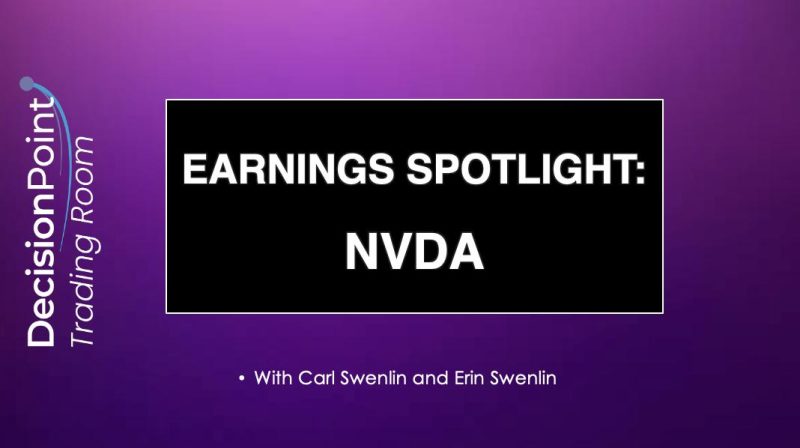In the world of investing, particularly in the fast-paced realm of trading, decision-making is a critical skill that can make or break a trader’s success. One such decision point arises when a highly anticipated event, such as earnings releases, looms on the horizon for a company. In this scenario, traders are faced with the question of whether to hold onto their position or sell before the event takes place. This article delves into the discussion revolving around NVIDIA Corporation (NVDA) going into earnings and presents insights and considerations for traders to ponder.
NVDA, a leading technology company specializing in graphics processing units (GPUs) and semiconductors, is known for its innovative products and solid financial performance. As the company’s earnings announcement approaches, traders must carefully evaluate the various factors that could impact NVDA’s stock price.
One of the key considerations when deciding whether to hold or sell a stock before earnings is the market expectations and analyst forecasts. Market sentiment plays a crucial role in how a stock reacts to earnings results. If NVDA has consistently beaten earnings estimates in the past and analysts are optimistic about its performance, there may be a tendency for the stock to rally leading up to the earnings release. In such a scenario, holding onto the stock could potentially yield higher returns for traders.
On the other hand, if there are concerns or negative sentiment surrounding NVDA, such as speculation of declining revenue or missed expectations, traders may opt to sell their positions before the earnings announcement to mitigate potential losses. Market volatility can significantly impact stock prices around earnings events, and traders need to assess their risk tolerance and investment goals when making the decision to hold or sell.
Another factor to consider is NVDA’s historical price action leading up to earnings announcements. Traders often analyze past performance to gauge how a stock may react in similar situations. If NVDA has exhibited a pattern of significant price swings before earnings, traders may choose to take profits or cut losses to avoid being caught off-guard by volatile price movements.
Furthermore, macroeconomic factors and industry trends can influence NVDA’s stock performance going into earnings. For example, if there are concerns about the broader technology sector or macroeconomic indicators that could impact NVDA’s business prospects, traders may decide to sell their positions to safeguard their capital.
In conclusion, the decision to hold or sell a stock like NVDA ahead of earnings requires a thoughtful analysis of multiple factors, including market expectations, historical price action, risk tolerance, and broader economic trends. Traders should conduct thorough research and consider their own investment objectives before making a decision. Ultimately, having a well-defined trading strategy and staying informed about relevant developments can help traders navigate the complexities of trading around earnings and maximize their potential returns.
